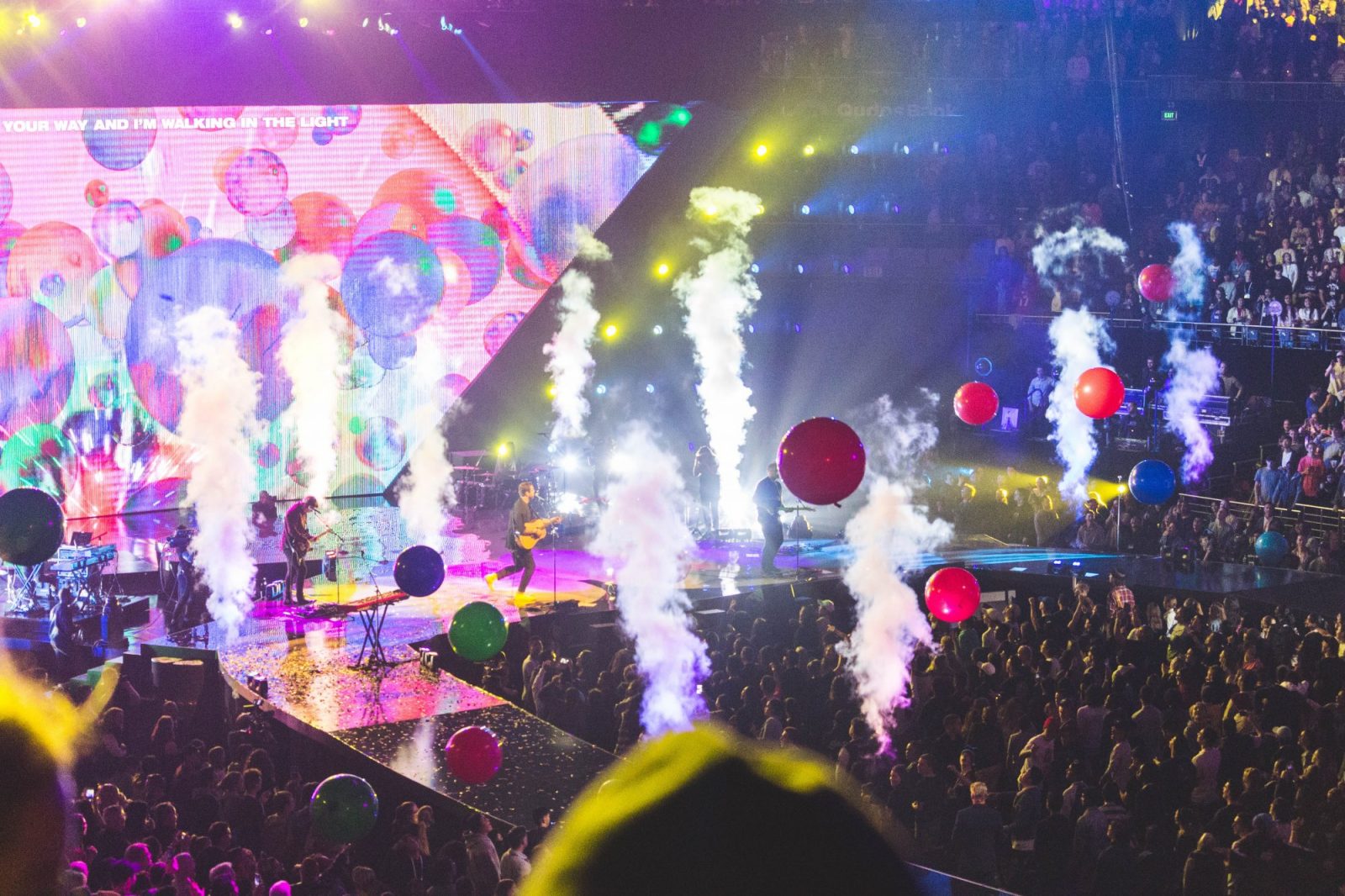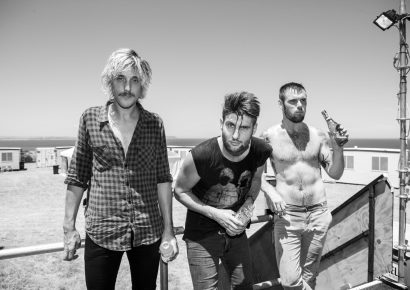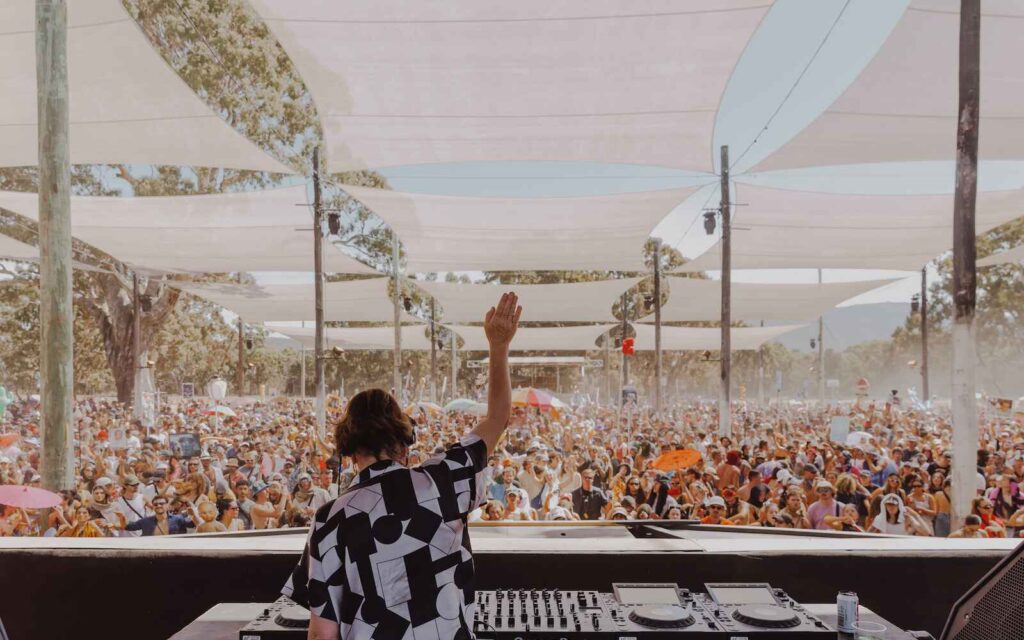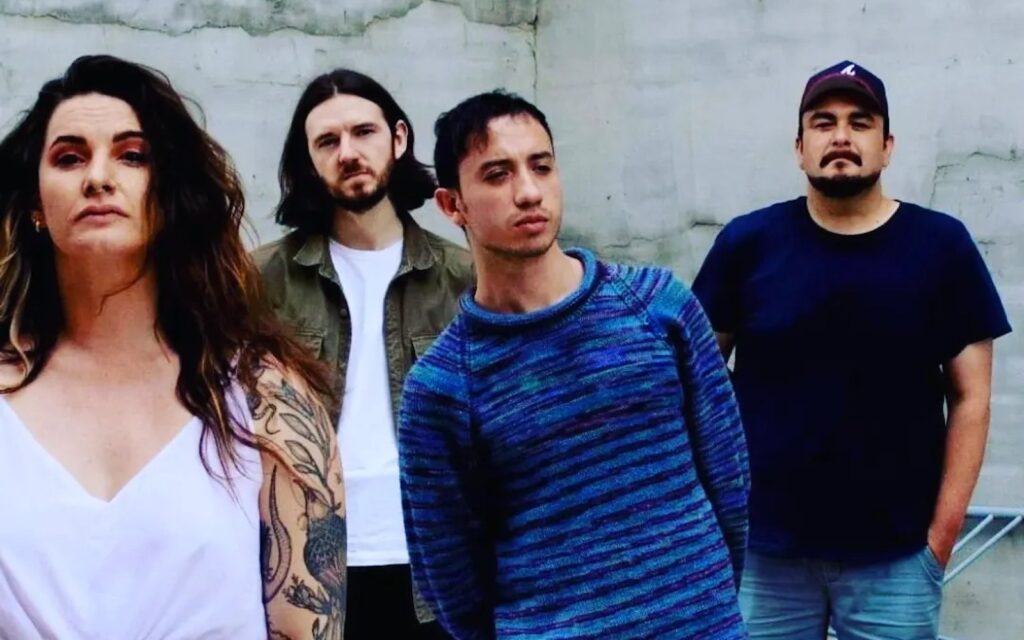We’re only three months into 2020 and it’s already been a hellish year.
A summer of extreme bushfires and property loss has given way to a worldwide pandemic in the form of coronavirus, with cases mounting daily.
At the moment, there are only around 120 COVID-19 cases in Australia, but that hasn’t stopped fear and panic from taking hold. We witnessed first-hand the effects that the bushfires had not only on communities, but on the live music industry, and it’s a similar story in the face of coronavirus.
The impacts of the virus have already been felt overseas, with huge US events like SXSW and Ultra Music Festival pulling the plug on their 2020 instalments, and Coachella pushing their event back to October.
It was only a matter of time until Australia followed suit, and Tasmania’s Dark Mofo has been the first major festival to fold, announcing the cancellation of the event via a statement on their website.
As the disease continues to spread, more people are self-quarantining and large gatherings are increasingly being discouraged, chances are we’ll see the loss of more festivals and live music events in the face of COVID-19.
Obviously, this means an uninteresting live music landscape for punters, but what do these closures mean for the event organisers themselves?
When David Walsh announced his decision to axe this year’s Dark Mofo, he was brazenly honest about his reasoning. Of course, the health and safety of patrons was a factor in cancelling the event, but a big concern was money, and ultimately, the potential financial losses he faced if the festival went ahead.
It might sound crude to some, but Walsh’s reasoning isn’t unfounded, nor is he alone in his line of thinking. The economic impacts of coronavirus are very real, and are already being felt in the stock market, with Wall Street recently reporting their worst global share plunge since the GFC.
As Dark Mofo is a multi-day, multi-venue event, the financial blow Walsh was facing were things to go bottom-up was somewhere into the millions – a loss that could have affected his capacity to ever host the festival again.
“…as far as I’m concerned, is that if we ran Dark and nobody came, I’d lose $5 million or more, because I would have to cover the absent ticket revenue,” Walsh said in his statement.
Luckily for them, the Dark Mofo team decided to throw in the towel before tickets for the event had been sold, saving them the headache of having to organise refunds or reimbursements for put-out patrons. Bon Iver, who were set to headline the event, are still playing their scheduled shows as part of their own national tour, but who’s to say that won’t change if the number of infections goes up.
The fallout from shutting down a festival is more than just a loss on the profit margin and a swarm of disappointed punters. As Austin Texas’ SXSW found out, it also has a catastrophic impact on employees and job security. After announcing the cancellation of the 2020 event, the US giant was forced to lay off a third of its 175 employees, citing financial strain as the reason.
The event didn’t have insurance that covered cancellation due to public health concerns and are now facing up to $10 million in losses. It’s almost a nail in the coffin for the long-running festival, with co-founder and CEO Roland Swenson voicing concern over the future of the event.
“We are planning to carry on and do another event in 2021, but how we’re going to do that I’m not entirely sure,” he told The Austin Business Journal.
Joining the list of people impacted by the closure of live music events are the ones they centre around – the bands. SXSW’s cancellation left the 43 hand-picked Australian artists in the lurch, many of whom had already spent time, energy and money on making the journey to Austin and the opportunity to get a leg up on the US stage. Artists and managers alike took to social media to express their disappointment at no longer being able to play the event, although there was shared respect for the festival’s ultimate decision.
“A lot of work goes on behind the scenes to get to a moment like this in a very cut-throat industry. a lot of time, money, risks, sacrifice, rejection, quick highs and lows and inconsistent ‘living on a dream’ realities,” Australian singer Jamie-Lee Dimes told The Music.
This was echoed by Alexander Biggs, who also said, “My heart goes out to all the indie bands that have lost so much, both financially and in opportunity, and to the artist managers that have worked so hard.”
With @sxsw officially cancelled, I just wanted to acknowledge the hard work a bunch of Australian managers (and self managed artists) have put in over the last +6 months to get to SXSW. Countless hours of planning. This news is hard to hear. #sxsw
— sabi (@sabi_11) March 6, 2020
Having to navigate and assess the financial risks, as well as the health ones, isn’t an easy task for any festival organiser, and nobody wants their event to be responsible for a concentrated mass outbreak. But cancelling isn’t the only option – some have been pushing back their festival dates instead.
This is the case for Coachella, another giant in the American music festival scene. Originally scheduled to run across two weekends in April, the event has now been moved to take place in October. Organising body Goldenvoice released a statement explaining their decision, saying, “While this decision comes at a time of universal uncertainty, we take the safety and health of our guests, staff and community very seriously.”
While, on the surface, postponing might seem more reasonable than an out-and-out cancellation, there’s a chance that they’re just delaying the inevitable. COVID-19 has repeatedly peaked in China, just a few months on from its initial outbreak, but it’s difficult to predict if that will be the case in other countries too.
The coronavirus shitstorm could all be over by October and Coachella could go on as a celebration of perseverance in the face of a pandemic. Or, it could still be plaguing us until early next year, and then event organisers would have to meekly announce the closure of the festival to pent-up punters. It’s really just too uncertain to tell.
While Dark Mofo is the only Aussie festival to have been cancelled in the face of coronavirus, it’s not the only live music event. Miley Cyrus was scheduled to appear at the Sidney Myer Music Bowl on Friday March 13 for a bushfire relief show, but has pulled out due to health concerns. Similarly, Pixies postponed their remaining Australian performances just a few shows into their tour.
With plenty of large gatherings on the live music calendar, it suddenly feels like a shadow of doubt is being cast over our industry as we know it. In a time of unprecedented public health fears surrounding COVID-19 it’s not unreasonable to think that large-scale live music events might not make it past the finish line.
In a time of panic and pandemic, it’s hard to predict a clear outcome of what the next few months hold. Our live music sector is undoubtedly bound to take a beating as quarantines come into play, but hopefully we’ll be ready to bounce back by the time summer festival season comes around.
Never miss a story. Sign up to Beat’s newsletter and you’ll be served fresh music, arts, food and culture stories three times a week.







